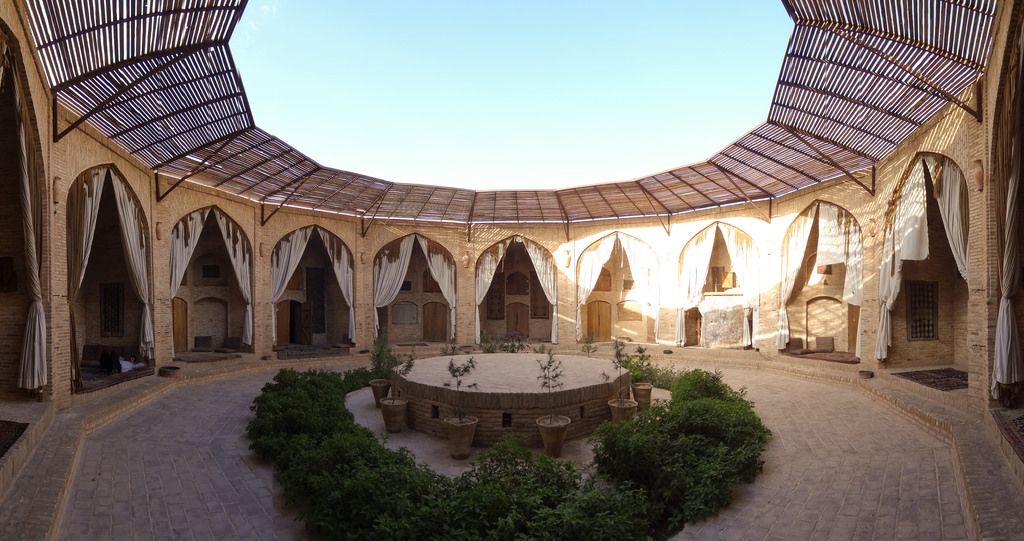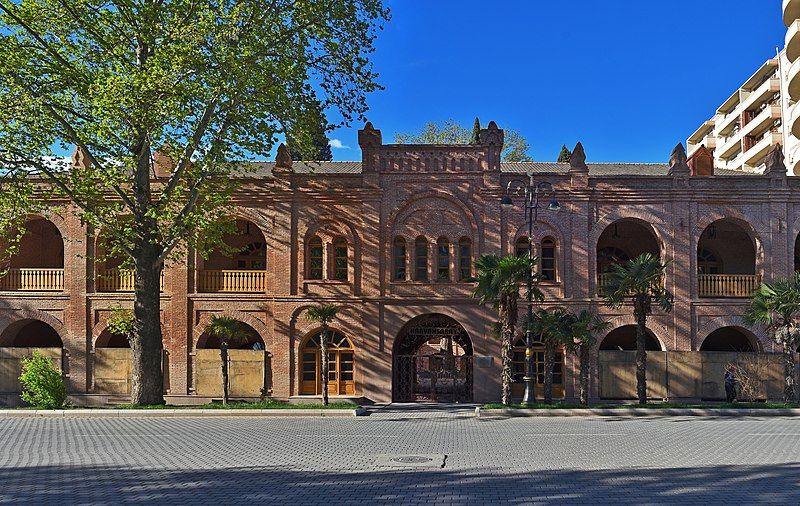
Ganja, Azerbaijan’s second-largest city, is home to stunning architectural treasures, particularly its caravanserais.
Shah Abbas Caravanserai is a must-see place in Ganja city, which was a significant centre for trade and craftsmanship in the Near and Middle East. The caravanserai was constructed in the early 17th century under the orders of Shah Abbas.
This stunning building, designed by architect Shaykh Bahauddin, is part of a larger historical ensemble that includes the Juma Mosque (also known as the Shah Abbas Mosque) and the Chekyak-Hamam, a medieval bathhouse.
The construction of the Shah Abbas Caravanserai utilised burnt bricks and a mixture of egg white, lime, and clay.
Built in an oriental style, the two-story caravanserai features 15 halls and 54 cells, with designated areas for pack animals in the yard. The caravanserai was staffed by servants, cooks, and musicians who catered to the guests’ needs. In recent times, the caravanserai served as the Abode of Knowledge, housing the Ganja Humanitarian College and the Mashati Ganjavi Museum dedicated to the poetess.
After undergoing restoration work, the caravanserai now functions as a museum, showcasing its historical and architectural significance.
Another impressive caravanserai in Ganja is the Ugurlu Khan Caravanserai, built in the early 17th century by architect Sheikh Bahaddin Mohammed Amil. The construction materials used included a clay-lime mixture, egg whites, and red bricks.

The caravanserai consists of two large courtyards and is connected to the Shah Abbas Caravanserai through internal passages. Contrary to popular belief, the Ugurlu Khan Caravanserai is not named after Javad Khan’s son, Ugurlu Khan. Instead, it is likely named after Ugurlu Khan I, the nephew of Murtuzaguluhana Ziyadoglu, the Ganja Baylarbayi (1663-64).
This noble figure may have financed the construction of the caravanserai. Following the capture of Ganja by Russian troops in 1804, the Ugurlu Khan Caravanserai, along with all the Khan’s property, was confiscated. Subsequently, one of the caravanserai halls was rented by Sherbatlars, silk kerchief manufacturers, leading to the locals referring to the caravanserai as “Sherbatchi.”
The caravanserais in Ganja showcase the city’s rich heritage and historical significance as a strategic trade hub in the region. Visitors can now explore these majestic structures, learning about their architectural and historical importance within Azerbaijan and beyond.
 Oval Useful news from Azerbaijan and Caucasus
Oval Useful news from Azerbaijan and Caucasus


